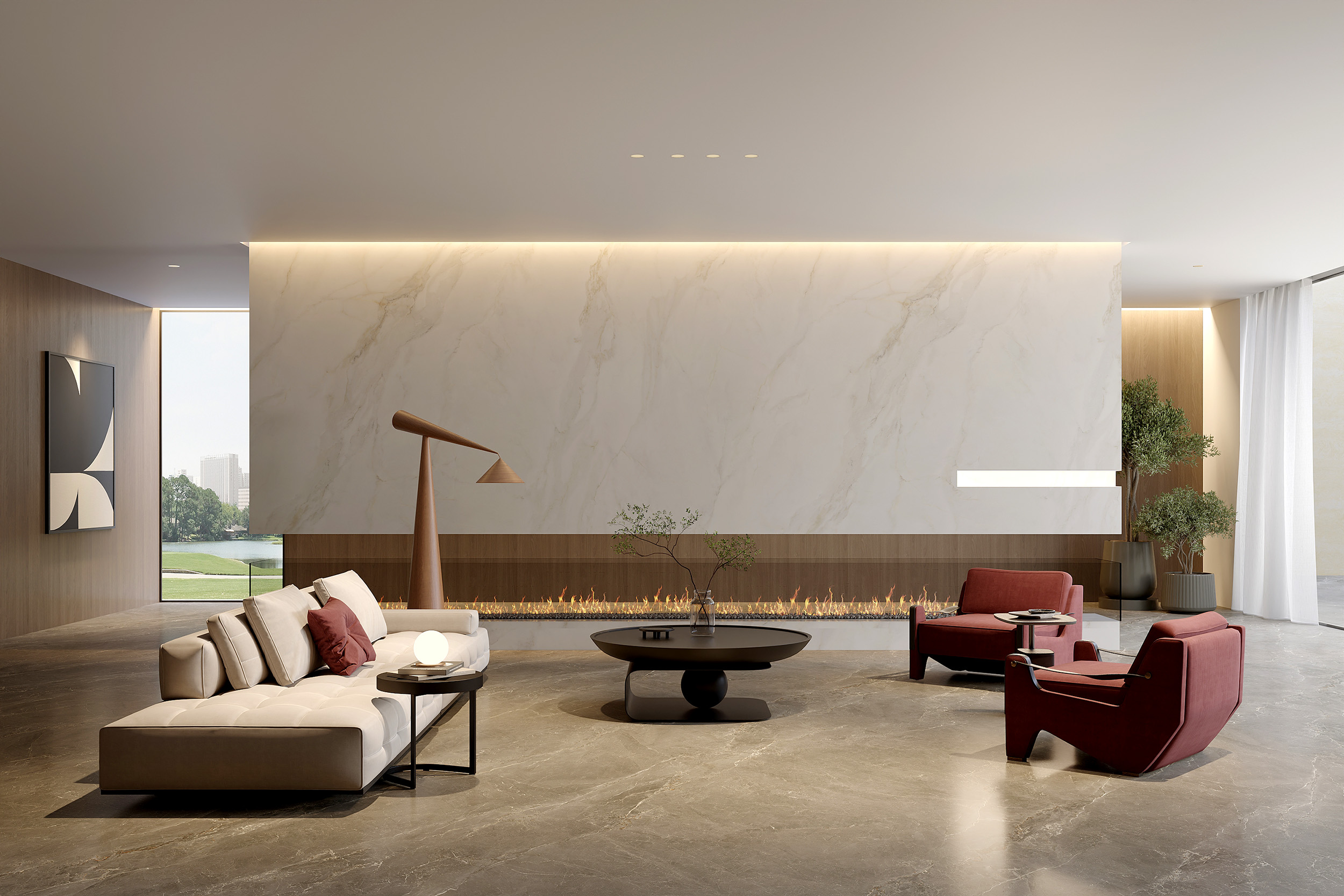Marble stone countertops, with their natural texture, elegant appearance, and high-end feel, have become a popular material in modern home, hotel, office, and kitchen designs. However, for many consumers and designers, the question "Is marble stone countertop easy to scratch?" remains a core concern.
This article will analyze the scratch resistance of marble stone worktops and related factors from multiple perspectives, including material properties, physical and chemical structure, usage environment, and maintenance methods, providing readers with a professional and detailed reference.
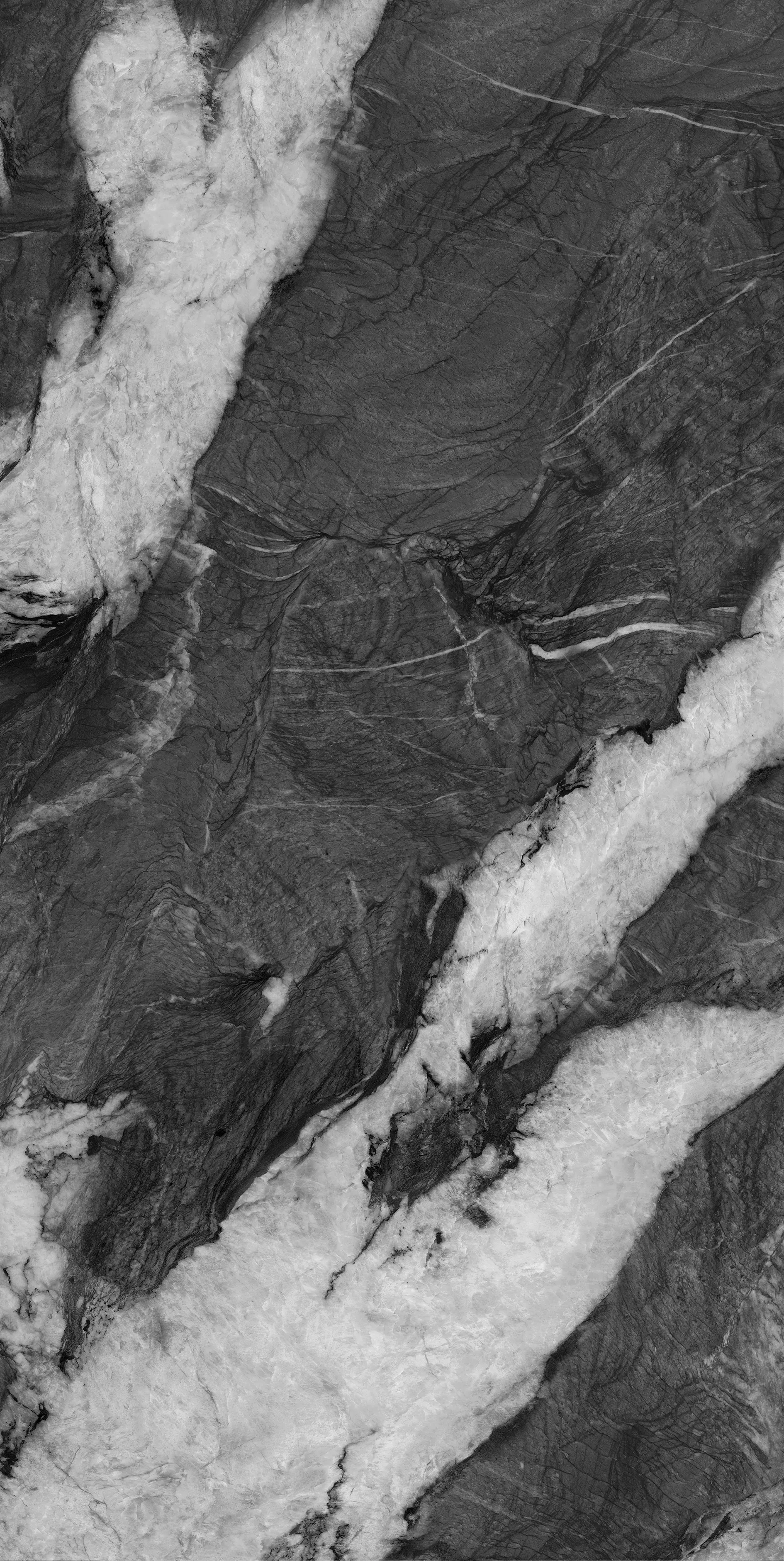
Marble Stone Countertop: What Are the Material Characteristics?
Marble is a metamorphic rock primarily composed of calcite (CaCO₃), and may also contain smaller amounts of dolomite, quartz, mica, and other minerals. Its unique crystal structure and natural texture give marble stone countertops a naturally elegant aesthetic.
However, in terms of physical properties, marble's hardness is relatively limited. On the Mohs hardness scale, calcite has a hardness of approximately 3, while a human fingernail has a hardness of approximately 2.5 and a copper coin has a hardness of approximately 3. Compared to materials like granite (hardness rating 6-7) and engineered stone (typically hardness rating 5-6), marble is more susceptible to scratches from sharp objects, hard metal utensils, and heavy objects.
In addition, the density and porosity of a marble countertop are also important factors affecting its scratch resistance. Natural marble contains tiny pores, typically ranging from 0.2% to 1%. Although the porosity is low, these tiny pores increase the visibility of scratches on the countertop surface, making the scratch more noticeable to the naked eye.
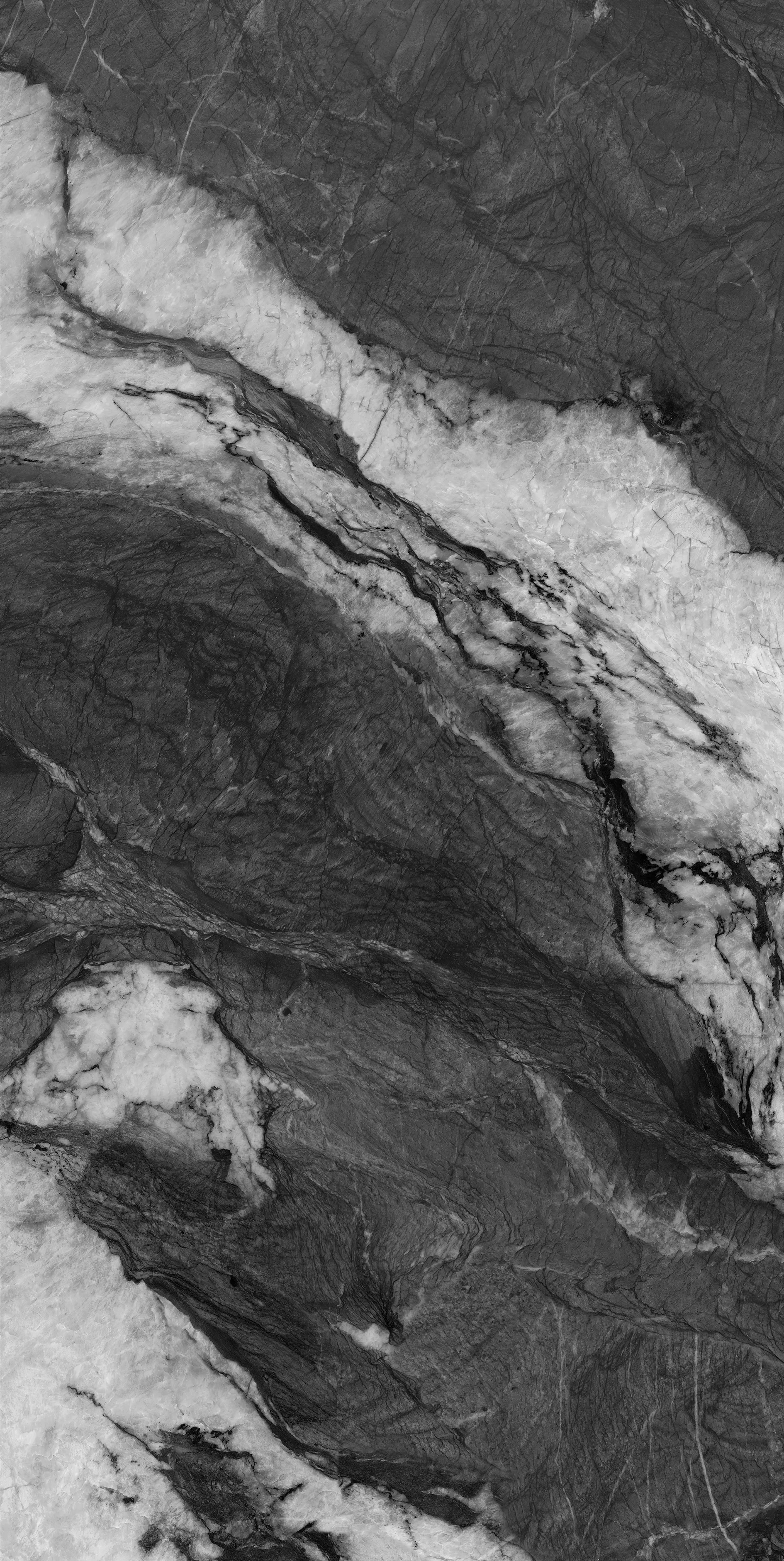
What are the reasons why marble countertops are prone to scratching?
1. Low Hardness
As mentioned earlier, marble is primarily composed of calcite, which has a hardness of around 3 on the Mohs scale. This means that with everyday use, sharp metal knives, iron cutlery, and heavy cookware can leave scratches on the countertop. Especially in the kitchen, activities like cutting vegetables and fruit, and moving pots and pans are a major source of scratches on marble countertops.
2. The Impact of Countertop Surface Treatment
Marble stone countertops are typically finished in either a polished or matte finish. Polished marble stone countertops offer a smoother, brighter finish, but also have a lower surface hardness, making scratches more visible. While matte marble stone countertops are relatively wear-resistant, they still cannot completely prevent scratches from sharp objects. These differences in surface treatment directly determine the visibility and wear resistance of marble stone countertops.
3. External Force
The formation of scratches depends not only on the hardness of the countertop, but also on the magnitude and direction of the external force. For example, light friction may not cause a noticeable scratch, while localized concentrated pressure or sharp corners can easily leave a scratch. Furthermore, dropping heavy objects or moving metal pots and pans can cause microscopic or visible scratches on marble stone worktops.
4. Daily Use Environment of the Countertop
The environment in which a marble stone countertop is used can also affect its scratch risk. In high-use areas like kitchens and dining rooms, countertops are prone to contact with hard objects such as metal cutlery, knives, and sand, increasing the likelihood of scratches. At the same time, if countertops frequently come into contact with water, grease, or detergents, the surface protective layer may gradually wear away, reducing their scratch resistance.
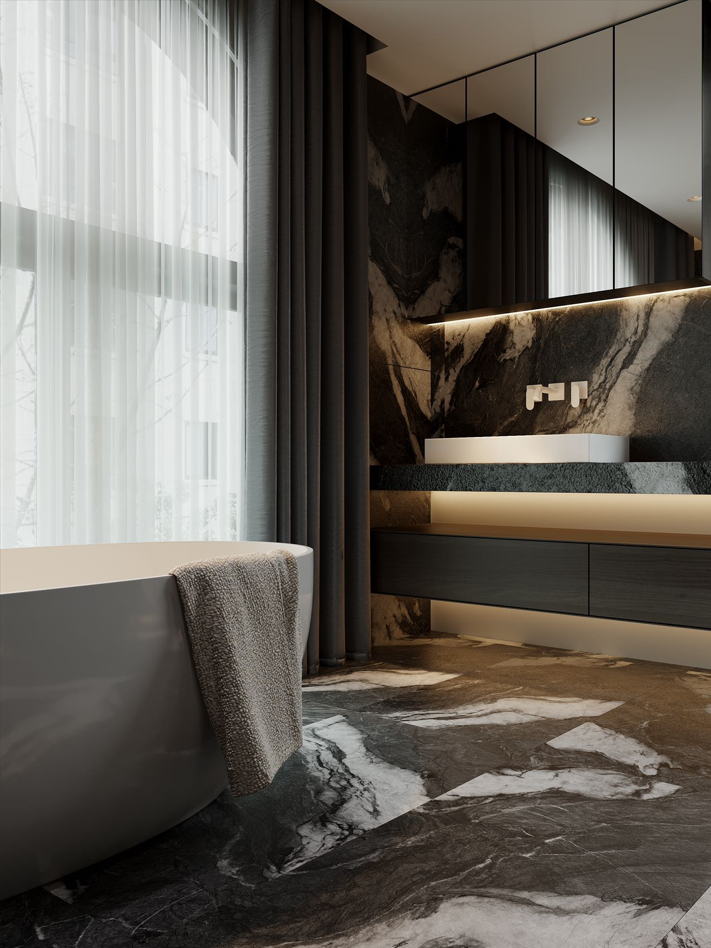
Comparison of Scratch Resistance of Different Types of Marble Stone Countertops
1. White Marble Stone Countertops
White marble, due to its light veins and bright color, easily shows scratches. Even minor scratches can create a significant visual contrast. While white marble offers an overall aesthetic advantage, it requires a higher level of care and attention during use.
2. Dark or Textured Marble Stone Countertops
Dark or heavily textured marble stone countertops are more effective at concealing scratches. The intricate texture can partially mask scratches, making them less noticeable. However, these countertops also have the disadvantage of being less hard and are still susceptible to localized scratches from sharp objects.
3. Polished vs. Matte Marble Stone Countertops
• Polished marble stone countertops offer a smooth, glossy surface. Scratches, especially on light-colored or white countertops, can be visually more noticeable.
• Matte marble stone countertops: The surface is slightly matte, making scratches less noticeable, but the surface texture may change slightly due to wear.
How do scratches form on marble stone countertops?
Scratches on marble stone worktops are primarily caused by physical wear. When sharp or hard objects rub against the countertop surface, they disrupt the marble's microcrystalline structure, causing microscopic cracks or indentations. These indentations become visible as scratches when exposed to light.
Chemical factors can also indirectly affect the appearance of scratches. For example, acidic or alkaline cleaners can attack the marble surface, reducing its hardness and thus its scratch resistance. While scratches are essentially mechanical damage, chemical exposure can increase their visibility.
How to assess the scratch risk of a marble stone worktop?
When purchasing and using a marble stone worktop, you can assess the scratch risk using the following methods:
• Observe the material hardness: Examine the mineral composition and hardness of the marble used in the countertop. Marble stone worktops with higher hardness are relatively scratch-resistant.
• Check the surface treatment: Polished surfaces scratch more noticeably, while matte surfaces are slightly more scratch-resistant.
• Assess the usage environment: Frequent kitchen operations or frequent contact with metal tools increase the risk of scratches.
• Consider color and texture: Light-colored and solid-colored countertops show scratches more noticeably, while darker and richly textured countertops can mask them to a certain extent.
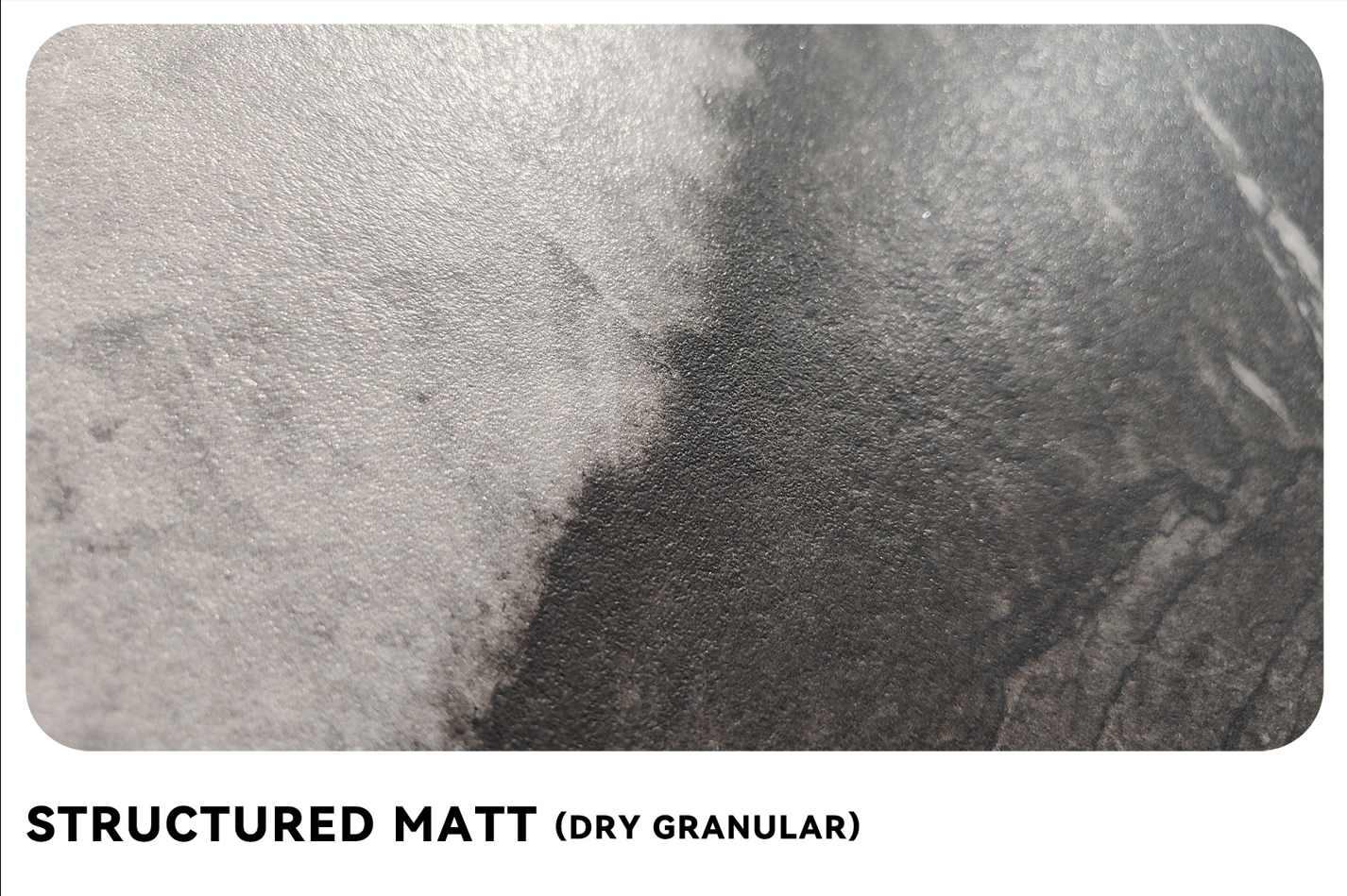
What are some ways to prevent scratches on marble stone countertops?
Although marble stone countertops have a limited hardness, the likelihood of scratches can be reduced through proper use and daily maintenance:
• Avoid direct contact with sharp objects: Use protective measures such as cutting boards, potholders, or cloths to prevent knives and metal objects from directly scraping the countertop surface.
• Regularly wax or seal: Professionally sealing or waxing the countertop creates a protective layer on the surface, increasing its scratch resistance.
• Proper cleaning: Use a neutral detergent and a soft cloth to wipe, avoiding acidic or alkaline detergents that can affect the surface hardness of the marble.
• Control usage habits: Avoid dropping heavy objects or dragging metal pots and pans to reduce concentrated pressure and wear on the countertop.
• Surface repair methods: For minor scratches that already exist, use a specialized polish or a grinding stone for local repair to restore the countertop's beauty.
Myths about marble stone countertops being easily scratched
When discussing the question "Are marble stone countertops easily scratched?" there are some common misconceptions:
Myth 1: The more expensive the marble, the more scratch-resistant it is
While high-end marble has more exquisite textures and colors, its Mohs hardness does not significantly change, so the risk of scratches still exists.
Myth 2: Glazing or polishing completely prevents scratches
Polishing or surface glazing can reduce minor scratches, but it cannot prevent noticeable scratches from sharp tools or hard objects. Glazing primarily provides a barrier and stain resistance.
Myth 3: Scratches will not occur as long as there is no heavy pressure
Minor friction, accumulation of metal particles, and sand can also gradually cause visible scratches on marble stone worktops.
Can WOWSLAB handle large-scale wholesale orders?
Absolutely. WOWSLAB is a leading Chinese manufacturer and supplier of marble and sintered stone slabs. Our factory is fully equipped to handle bulk purchasing, wholesale orders, and customized solutions for large projects worldwide.
Buyers benefit from competitive prices, promotional discounts, and reliable delivery schedules. Our company provides complete support throughout the purchasing process, from material selection to installation guidance.

